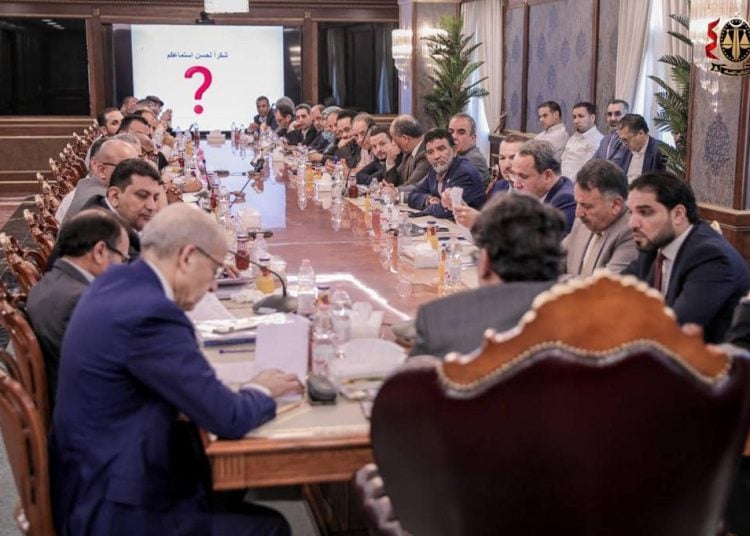At an expanded meeting on Tuesday at the Attorney General’s Office, headed by Attorney General, Sideeg Al-Sour, the mechanism, financial and organizational plan for the contentious issue of sending students abroad on a state-sponsored scholarship was approved. The meeting also approved the schedule for state overseas education scholarships, emphasizing that candidates must fulfil the conditions for sending candidates abroad are considered.
The expanded meeting included the Governor of the Central Bank of Libya, the head of the Audit Bureau, the Administrative Control Authority, the Minister for State for the PM and Cabinet Affairs, the Ministers of Higher Education and Scientific Research, the Minister of Planning, the Finance Minister, a representative of University Faculty Union, representatives of branches of the Faculty Syndicate in several universities, and a representative of the National Association for Talented and Gifted People
A just and fair right to a state-sponsored overseas education scholarship
The Attorney General’s Office reported that the focus of the meeting was to follow up on the latest measures related to protecting the right to education, and to address the issue of sending students to study abroad. The meeting discussed the outputs of the committee charged with developing a plan for organizing the movement of those sent abroad. The attendees ended up adopting the plan, it reported.
Analysis: Corruption and nepotism rampant in the overseas scholarship file
The reason why the meeting was headed by the Attorney General and was attended by the top echelons of the Libyan state institutions is that simply: the allocation of overseas scholarships is one of the most corrupt and nepotistic processes in the corrupt Libyan bureaucracy.
Year in year out, relatives, friends, fellow tribesmen and women and allies of ministers, state institution heads and militia commanders find their way into the scholarship lists without right or meritocracy. There is no shame or attempt to hide this corrupt process by the political / military elite as the list is made public.
Social and traditional media have a heyday highlighting relatives and associates of incumbents – leaving those who deserve the right to study abroad through their academic achievements demoralised and indignant.
The Attorney General is concerned about the legality and fairness of the process while the Central Bank wants to limit the annually awarded state-sponsored scholarships.










